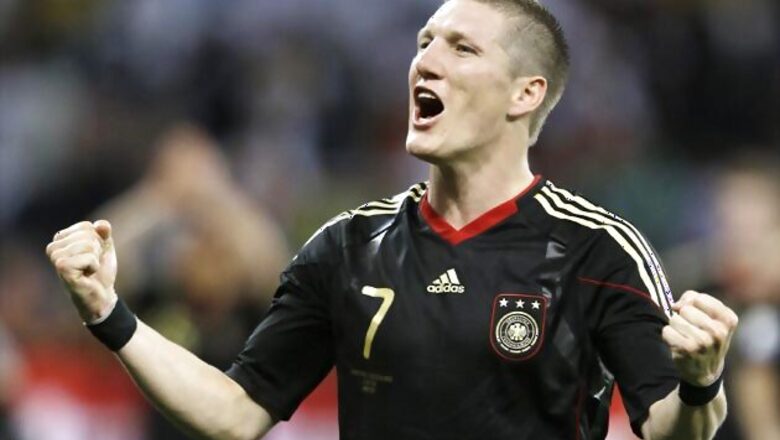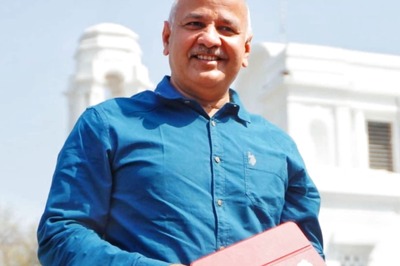
views
Durban: When Michael Ballack was ruled out of the World Cup with an ankle injury, many feared that without their captain, Germany’s young and inexperienced team would collapse under pressure. And yet, coach Joachim Loew retained an air of cool confidence.
“Bastian Schweinsteiger, on the pitch, will play the role of Ballack and interpret in his way while Philipp Lahm will become captain,” said the German gaffer.
Over the course of the World Cup thus far, Loew’s assuredness has been fully justified. Lahm has been an absolute pillar in his right full-back role, but it is Schweinsteiger, always in the thick of the action, who has been his team’s main source of inspiration.
A combined defensive stalwart and ball-magnet, the converted winger is, as Peter Staunton wrote in April, “with no exaggeration, Bayern Munich’s Xavi.” And unlike so many stars, his quality fully translates between club and country. Against Argentina, Schweinsteiger’s performance was exemplary of just how enormous he has become.
In defence, the 25-year old tracked Lionel Messi, forcing the reigning Ballon d’Or winner to run deep in order to receive service. He tackled hard, but never made a decision rash enough to earn a booking, and in doing so, avoided suspension for the semi-finals.
But it is in his build-up play that Schweinsteiger revealed the reason for Loew’s choice of words. Take note that the Germany coach never claimed that Schweinsteiger would step into Ballack’s role exactly. Rather, he said that Schweinsteiger would interpret Ballack’s role “in his own way.”
Crucially, the Bayern Munich man has retained his style of play, rather than attempting to replace his injured captain. Whereas Ballack is more apt to receive the ball and immediately look to pass, Schweinsteiger is an adept dribbler, and offers another option for shepherding the ball out of danger and building the German attack. In this regard, he is a far more appropriate midfield anchor for the current German team than was Ballack as he keeps the ball moving quickly, cuts into space well, and sets up the counterattack that Germany play so well.
But, as is so often the case with German stars, it is not just the technical talent that makes Schweinsteiger such a powerhouse; it’s his desire, confidence, and concentration. Just as he did against Portugal at Euro 2008, the vice captain delivered a perfect free kick from the left channel to assist an early—and match-defining—opener. In the same situation, many of similar or even superior skill might have sent the ball into the stands. But Schweinsteiger did not.
While many would have sprinted towards goal and taken a shot from a tight angle, Schweinsteiger had the presence of mind to draw out goalkeeper Sergio Romero and set up Arne Friedrich with a simple tap-in for Germany’s third goal. And perhaps most importantly, while others might have lost concentration long enough for Messi to gain some space, Schweinsteiger always had his opponent under control, yet still managed to run the German attack. His nerves are always on ice.
Schweinsteiger’s development is not going ignored. Not long ago, Chelsea were rumoured to have offered over €30 million for the midfield dynamo. Last week, Real Madrid reportedly upped the bidding to €50m. After today’s performance, Schweinsteiger may soon find himself in Cristiano Ronaldo territory.
Any formal bid, however, is unlikely to see him leave the Saebener Strasse; Bayern chief executive officer Karl-Heinz Rummenigge has already declared his World Cup star is untouchable. That suits Schweinsteiger, who is Bavarian to the core, quite well.
At just 25 years of age, Schweinsteiger is one match away from doing what Ballack could never achieve: play in a World Cup final (Ballack was suspended for the 2002 final against Brazil). And to think, just a month ago, many of us were expecting Germany to bow out early in the knockout rounds.















Comments
0 comment